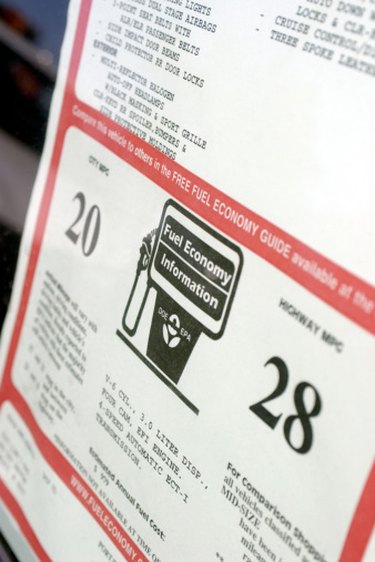
Vacuum leaks are among the most common economy-impacting engine malfunctions, especially on older vehicles. While they are generally simple to fix, locating a leak may prove the most difficult part of repairing it.
Definition
Video of the Day
Engines need a precise amount of air to burn fuel. Air leaks between the throttle plate, the engine's primary air-metering valve, and the cylinder head will allow more air to enter the engine than is required to burn the fuel. This "lean burn" condition can cause a loss of power and efficiency.
Video of the Day
Effects
While increasing the ratio of air to fuel can be a boon to fuel economy under certain circumstances, an uncontrolled vacuum leak will usually hurt power. This loss of power means the driver has to open the throttle more to maintain the same speed. On fuel injected engines, the unaccounted-for air confuses the computer, which will attempt to compensate for the additional airflow by increasing relative fuel flow.
Exceptions
A vacuum leak may not always negatively impact fuel economy. If the engine's original air/fuel ratio was set a bit rich (too much fuel), then a vacuum leak can actually help to increase horsepower and fuel economy by restoring the air/fuel balance to its ideal 14.7-to-1 ratio.